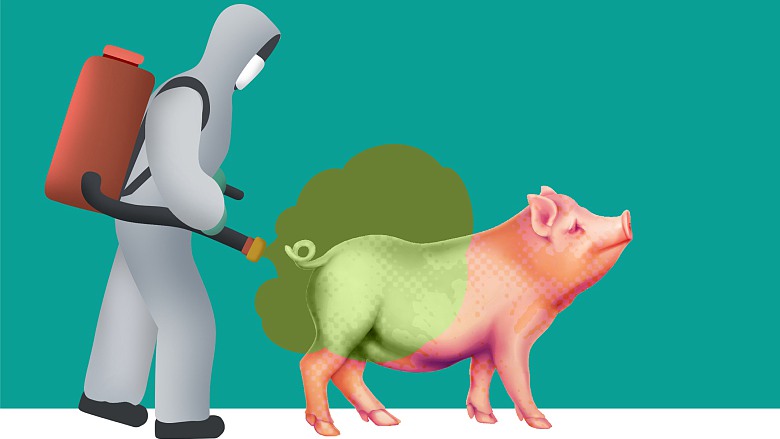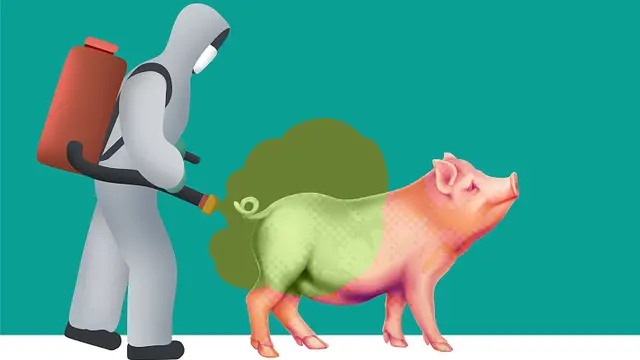
China will strengthen the identification and testing of the African swine fever virus. /CFP
China will intensify crackdown on illegal production and sales of fake African swine fever vaccines as the country tries to fight the resurgence of the virus, according to a statement issued by the Ministry of Agriculture and Rural Affairs on Monday.
"African swine fever is still a major risk factor that affects the country's pig production," the ministry said, vowing tougher measures against the usage of illegal vaccines.
The country reportedtwo outbreakson March 6, with one in Aba Tibetan and Qiang Autonomous Prefecture in southwest Sichuan Province, and the other detected in illegal piglets being transported to the city of Xiangyang in Hubei Province.
Up to now, there is no approved vaccine against the virus in any country worldwide, the ministry said, adding that any form of this sold in the market is fake, and the usage of fake vaccines may cause "endless risks."
It urged local animal husbandry and veterinary departments to strengthen supervision and management over the research and development, production, management, and use of African swine fever vaccines and severely crack down on the production, sale and use of fake ones.
The identification and testing of the African swine fever virus must be strengthened, said the ministry, urging local governments to identify any positive samples of the virus and report any strains with artificial gene deletions to provincial veterinary authorities as soon as possible.
All localities should increase the punishment of illegal activities related to fake vaccines, with any suspected criminal cases promptly referred to the judiciary, it said. Drug companies engaging in such illegal activities would be fined by the maximum amount, their operation licenses revoked, and people in charge banned from producing veterinary products for life.
The disease is creeping back in Asia
African swine fever, with an epidemic history of nearly 100 years, is a challenging global problem. First found in Kenya in 1921, it is a highly contagious viral disease of swine with mortality rate approaching 100 percent.
Besides China, other Asian countries are seeing a resurgence of the disease this year.
Malaysia reported its first outbreak of the disease last month when the virus was detected in a wild boar and backyard pigs in the state of Sabah on Borneo island.
The disease was detected in at least 300 pigs in three districts – Pitas, Kota Marudu, and Beluran. The Sabah government said it would cull 3,000 pigs in the state.
In the latest statement on March 7, the government said the virus had spread to other districts, but the commercial pig farms, which supply most of the pork products, were not infected.
In Vietnam, small outbreaks have been reported in more than 20 regions across the country, but the situation is still under control, said the agriculture ministry, adding that about 2,000 pigs had been culled by the end of February this year.
The country's pig herd at the end of December was 27.3 million, about 11 percent lower than that before the first outbreak in 2019. It expects to begin the production of a vaccine against the disease in late June or early July.
Although no new cases have been reported in South Korea since last October, the country said it will step up preventive measures ahead of this year's breeding season for wild boars in April and May.
The country's agriculture ministry strengthened border quarantine after new cases were reported elsewhere in Asia in late February.
(With input from Reuters)
 简体中文
简体中文



